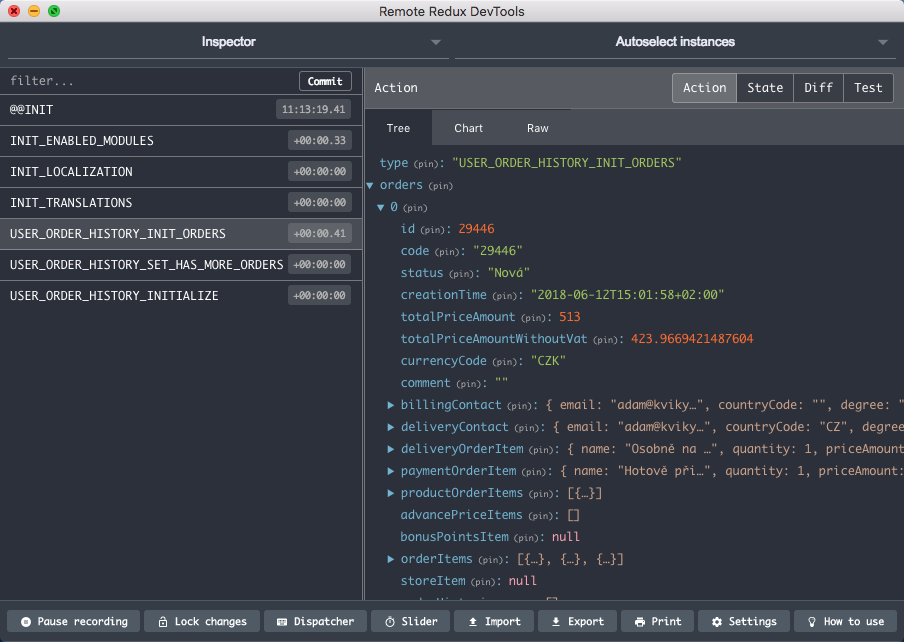


Then, call createStore and pass in the root reducer:Ĭonsole. Add a new fileĬalled store.js, and import createStore and the root reducer. The Redux core library has a createStore API that will create the store. Let's import that root reducer and create our first store. That root reducer is currently defined in src/reducer.js in our example app. In the previous section, we created a root reducer function using combineReducers. Creating a Store Įvery Redux store has a single root reducer function. When you want to split your data handling logic, you'll use reducer composition and create multiple reducers thatĬan be combined together, instead of creating separate stores. It's important to note that you'll only have a single store in a Redux application. Handles unregistering of listeners via the unsubscribe function returned by store.subscribe(listener).Registers listener callbacks via store.subscribe(listener).Allows state to be updated via store.dispatch(action).

Allows access to the current state via store.getState().Holds the current application state inside.The Redux store brings together the state, actions, and reducers that make up your app. Now, it's time to pull those pieces together, with the central piece of a Redux app: the store. To create a "root reducer" based on the different "slice reducers" for each feature in our app. We also wrote reducer functions that can handle updating our state.todos and state.filters sections, and saw how we can use the Redux combineReducers function To describe "what happened" and match the kinds of events that can happen as a user interacts with our app. Listed business requirements, defined the state structure we need to make the app work, and created a series of action types In Part 3: State, Actions, and Reducers, we started writing our example todo app.
Redux dev tools how to#
Redux dev tools update#


 0 kommentar(er)
0 kommentar(er)
